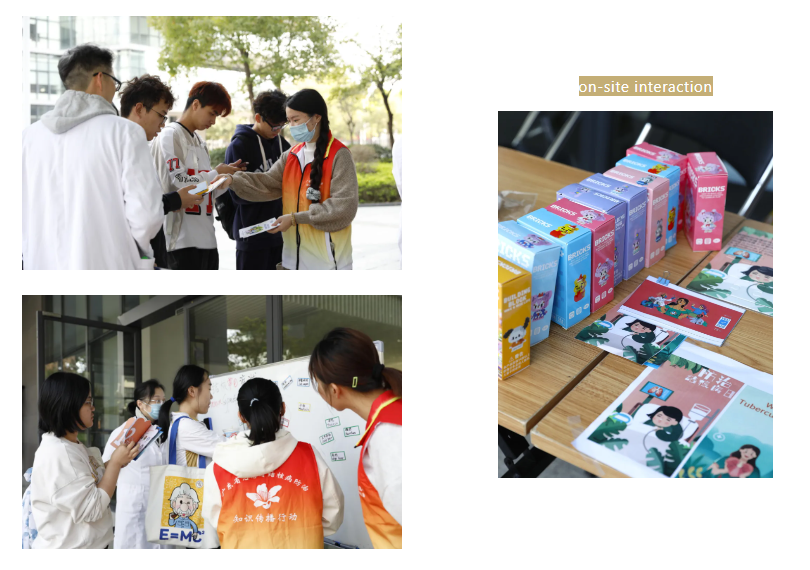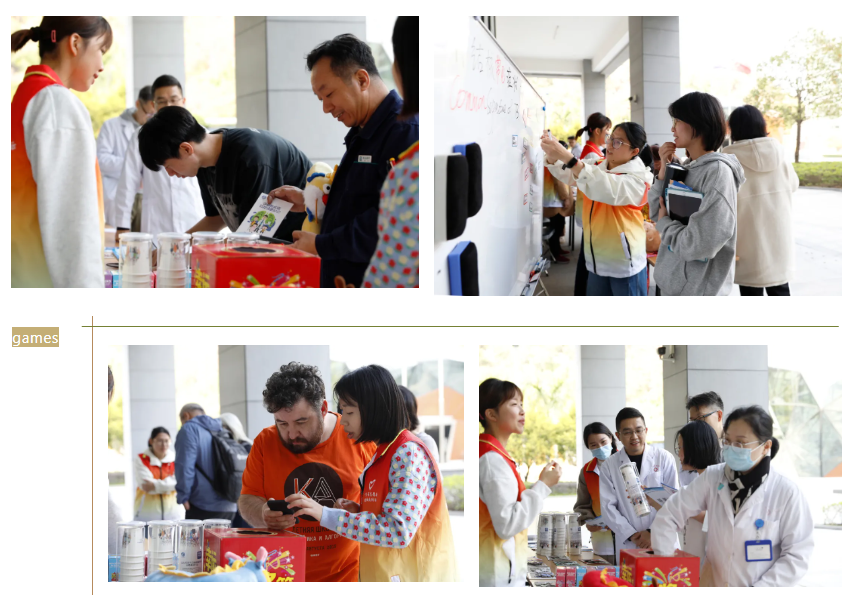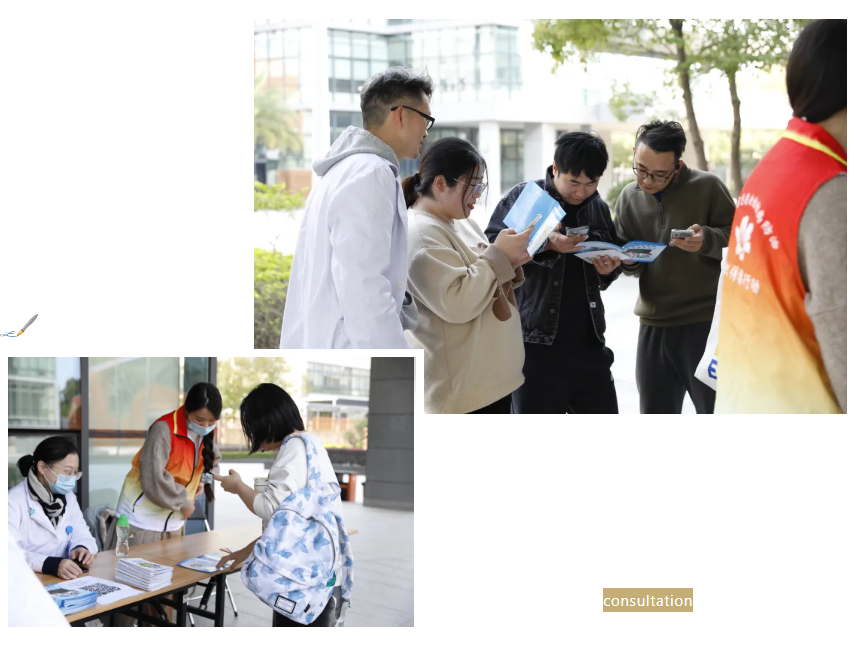PostTime:3/28/2024
World Tuberculosis (TB) Day, 24 March 2024, continues with the theme “Yes! We can end TB”. To further combat TB and build a healthy campus, Guangdong Technion - Israel Institute of Technology (GTIIT) launched a TB prevention and control activity recently, inviting specialists from Shantou Institute of Tuberculosis Control and Prevention for health information promotion.
With bright-colored flowers blooming on campus, the booth of TB health education at GTIIT was crowded with students and teachers.

At the site, volunteers actively popularized the main symptoms, transmission routes and prevention methods of TB via forms of brochures, posters and games, and guided the attendees to raise TB awareness and cultivate a healthy lifestyle.
The enjoyable games instantly attracted many students amid warm atmosphere.

The doctors of Shantou Institute of Tuberculosis Control and Prevention patiently cleared up doubts of the participants, shared TB misunderstanding, and put forward practical suggestions on TB prevention.
Mr. Xin of the institute said TB can be treated in most cases after standardized treatment, and stressed that rest, exercise, and healthy diet should be maintained on a daily basis to boost individual immunity and resist disease.

This activity not only stepped up the TB prevention level of GTIIT teachers and students, but also contributed to building a healthy environment on campus.
Health information
1. What is tuberculosis?
Tuberculosis (TB) is a highly contagious disease caused by the invasion of Mycobacterium tuberculosis into the human body. As the longest-lasting health killer which has caused the most deaths, it can occur in any part of the body, with the lungs being the most common site. It’s transmitted primarily through droplet inhalation.
2. What are TB symptoms?
The main suspicious symptoms of pulmonary tuberculosis include coughing and expectoration for more than 2 weeks or blood-tinged sputum. Other symptoms may include chest pain, chest tightness, difficulty breathing, low-grade fever in the afternoon, night sweats, fatigue, poor appetite, and weight loss.
If you suspect you might have tuberculosis, promptly visit a designated tuberculosis hospital for diagnosis and treatment.
3. How to prevent tuberculosis?
? The main source of tuberculosis transmission is patients with secondary pulmonary tuberculosis. Early detection, isolation, and treatment are crucial.
? Vaccination with BCG (Bacille Calmette-Guérin) vaccine is recommended.
? Enhance infection resistance and self-protection by adopting healthy hygiene and lifestyle habits, such as avoiding smoking and excessive alcohol consumption, ensuring sufficient sleep, maintaining a balanced diet, and engaging in physical exercise.
? Reduce contact with TB patients. Take precautions such as wearing a mask when visiting them with the permission of a doctor.
? Disinfect and properly dispose of the sputum, daily necessities, and surrounding items of positive patients. Use UV disinfection indoors, boil used utensils, and expose bedding to the sun.
4.Can students with TB attend class?
If a student is suspected of developing TB, the school should report it to the clinic and work together in screening and investigation. Once a case of tuberculosis is identified, the school should promptly notify the disease prevention and control agency, and conduct close contact screening together, with attention paid to the health status of classmates, dormmates, and teachers who have been in contact with the patient.
Management of students and staff who need to take a break from school or work for treatment should be standardized. Under the guidance of the disease prevention and control agency, medication management for students undergoing treatment and preventive treatment should be properly implemented.
5.Are treated TB patients infectious?
After standardized treatment, the infectivity usually decreases rapidly. After several weeks of treatment, the number of Mycobacterium tuberculosis in the sputum will significantly decrease, and most patients will no longer be infectious. Once a TB patient completes the prescribed treatment plan and reaches the cure standard, the sputum will no longer contain Mycobacterium tuberculosis, and the patient will no longer be infectious.
6.Designated TB institutions in Shantou
Shantou Institute of Tuberculosis Control and Prevention Tel:
0754-88554675
The Third People's Hospital of Shantou Tel:
0754-87251930/0754-87490166
Text:GTIIT Clinic, GTIIT News & Public Affairs
Photos: GTIIT News & Public Affairs
© GUANGDONG TECHNION-ISRAEL INSTITUTE OF TECHNOLOGY | 粤ICP备17036470号
